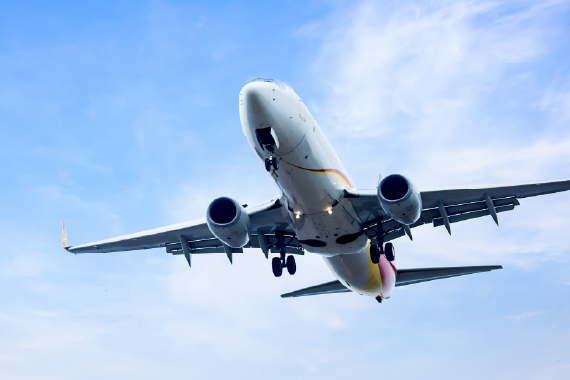We collaborate to achieve sustainable success
A leading environmental solution provider
Get in touch with usThe Future of Aviation with SAF and Hydrogen Propulsion
The aviation industry, a vital global connector, faces a formidable challenge: decarbonisation. As the world accelerates towards net zero emissions, the sector is undergoing profound transformation, with Sustainable Aviation Fuels (SAF) and hydrogen propulsion emerging as cornerstones of its greener future. The year 2025 marks a pivotal period of technological progress and policy implementation that will reshape how we fly.
Sustainable Aviation Fuels (SAF): The Immediate Impact
Sustainable Aviation Fuels (SAF) are widely recognised as the most effective means of reducing aviation emissions in the near to medium term. Unlike conventional jet fuel, SAF is produced from renewable sources such as agricultural residues, algae, or even captured carbon dioxide, delivering substantial lifecycle emission reductions.
Policy support is playing a crucial role in accelerating SAF adoption. The EU’s ReFuelEU Aviation regulation, effective from 2025, mandates a minimum 2% SAF blend in all fuel supplied at EU airports, rising progressively to 70% by 2050. Achieving this will demand close collaboration across the value chain, fuel suppliers, airports, and airlines, ensuring both infrastructure readiness and widespread uptake.
Hydrogen and Electric Propulsion: The Long-Term Vision
Beyond SAF, hydrogen propulsion is emerging as a transformative technology, particularly for long-haul aviation, offering the potential for zero-carbon flights when produced using renewable energy. In 2025, industry leaders such as Airbus are testing hydrogen combustion engines on modified aircraft under the ZEROe programme, aiming to deliver substantial efficiency gains. Meanwhile, innovative companies such as ZeroAvia are advancing hydrogen fuel cell technology for regional aircraft, with successful test flights already completed.
Electric and hybrid-electric propulsion systems are also gathering momentum, particularly for shorter and medium-range flights. Small hybrid-electric aircraft are expected to enter commercial service in the late 2020s, with regional aircraft following in the 2030s. Projects such as NASA’s Electrified Powertrain Flight Demonstration (EPFD) are trialling megawatt-scale systems for larger aircraft, while manufacturers such as Pratt & Whitney are developing hybrid engines that combine gas turbines with electric motors, targeting major improvements in fuel efficiency and CO₂ reduction.
These innovations illustrate an industry striving to balance immediate decarbonisation needs with longer-term technological ambitions, pushing the boundaries of what is possible in sustainable aviation.
How AFS Energy Can Help You Fly Greener
AFS Energy has extensive expertise in guiding clients through the complexities of environmental commodity markets, including biofuels and tradeable biofuel certificates. This positions us uniquely to support businesses in navigating the fast-developing SAF markets.
We can help your organisation by:
- Facilitating Market Access: Leveraging our deep knowledge of biofuel markets, we provide critical insights and direct access to the evolving SAF sector, helping you secure supply and understand pricing dynamics.
- Navigating Regulatory Incentives: We guide businesses in maximising the economic benefits of biofuel use through regulatory incentives and certificates, reducing reliance on fossil fuels. This expertise is directly relevant to SAF mandates and emerging hydrogen policies.
- Strategic Advisory: Our team delivers tailored solutions to integrate SAF strategies into your wider sustainability roadmap, ensuring compliance with regulations such as ReFuelEU Aviation and alignment with long-term decarbonisation goals.
The future of aviation is unequivocally green, driven by pioneering technologies and robust policy support. By partnering with AFS Energy, your business can embrace these innovations with confidence, ensuring compliance, reducing emissions, and contributing to a more sustainable future for air travel.


